Home - INVITED SPEAKERS
Jason C. White, PhD is the Director of the Connecticut Agricultural Experiment Station, the oldest Agricultural Experiment Station in the United States. In addition to managing the agency budget of $14 million and approximately 110 scientific staff, he has a research program of $5.1 million in competitive funding/research. He is the Managing Editor for the International Journal of Phytoremediation, an Associate Editor for NanoImpact and for Reviews of Environmental Contamination and Toxicology, on the editorial board of Environmental Pollution, and ACS Agricultural Science and Technology, and on the Editorial Advisory Boards of Environmental Science & Technology and Environmental Science & Technology Letters. His primary research program focuses food safety and security, with specific interests on the impact of nanomaterials on agricultural plants and on the use of nanoscale materials to increase food production and crop climate resilience. He is a member of the Connecticut Academy of Science and Engineering, as well as the European Science Foundation College of experts. He is also a Clarivate Web of Science Highly Cited Researcher, 2020-2023. His h-index is 87, i-10 index is 291 and he has published approximately 300 papers that have been cited 26,981 times, as well as 11 book chapters. He received my Ph.D. in Environmental Toxicology from Cornell University in 1997 and has secondary appointments at the Yale School of Public Health and the University of Massachusetts Stockbridge School of Agriculture. He is also a Commissioned Official of the United States Food and Drug Administration (US FDA).
Prof. Chuan-Pu Liu obtained Ph.D. from University of Cambridge in 1999. In Aug, 2000, he joined the Department of Materials Science and Engineering, National Cheng Kung University and was promoted to a chair professor in 2020. Prof. Liu has become an internationally well-known researcher in the fields of Lithium Ion Battery, nano-generator, nanomaterial, and transmission electron microscopy. Currently, there are about 6 Ph.D. students and 10 MS students as well as 3 postdocs working together in Prof. Liu’s “Semiconductors and Nanomaterials Lab”. Prof. Liu has published 260 journal papers with h-index of 36 including high profile journals such as Nano Letters, Advanced Materials, Advanced Functional Materials, ACS Nano. Prof. Liu has received the excellent research award twice from Ministry of Science and Technology of Taiwan (2014, 2017). Prof. Liu was also just elected as Fellow of Materials Research Society of ROC (2018).
Nathalie Steunou completed her PhD on the synthesis of Ti-oxo clusters in 1997 in the Laboratory Chimie de la Matière Condenséee de Paris (LCMCP) at the University Pierre & Marie Curie (Paris). After a post-doctoral position at the Max Planck Institute for Colloid and Interfaces (Potsdam, Germany), she returned to LCMCP as an assistant professor for 11 years working on the development of hybrid materials by assembling metal oxides and biomolecules. In 2010, she was promoted to a full professor position at the Institut Lavoisier from the University of Versailles-Paris Saclay. Her current research interests focus on the design of nanomaterials and composites based on Metal Organic Frameworks for catalysis, adsorption and bio-related applications.
Prof. Katarzyna Matras-Postołek, chemist by education, graduate of Cracow University of Technology (CUT). In 2006-2012, she worked as a scientist at Münster University of Applied Sciences in the Institute for Optical Technologies in Germany. In 2010 she completed Ph.D. at CUT. In 2013, after almost 7 years of work in Germany, she returned to Poland to CUT. In 2019 she obtained her habilitation in chemistry. Currently, Katarzyna Matras-Postołek works as professor at the Faculty of Chemical Engineering and Technology, CUT. Since 2019 she is Vice-Dean for Evaluation and International Cooperation at Faculty of Chemical Engineering and Technology and Member of the Research Excellence Council of CUT. Katarzyna Matras-Postołek’s research interests focus on broadly-defined subjects related to functional nanomaterials including semiconductor nanocrystals and their potential application in optoelectronics and photocatalysis. Katarzyna Matras-Postołek has received a number of scholarships, e.g. for outstanding young scientists in Poland (2016). In 2015, she was awarded the TOP 500 Innovators program in Poland within she took part in a 9-week internship at University of California, Berkeley, USA. Since 2014, she is a visiting professor at University of Jinan, China. Since 2019 she is a scientific member of international AMPERE organization. Author about 70 publications from the Philadelphia list, principal investigator of projects funded by the Foundation for Polish Science, the National Science Centre and the National Centre for Research and Development in Poland, as well as EU founds.
Dr Karolina Z. Milowska is an Ikerbasque Research Fellow at CIC nanoGUNE working on low-dimensional systems for sustainable energy generation. Prior to this she spent 5 years at the University of Cambridge (UK) as Research Associate investigating thermoelectric properties of CNT-metal composites (2016) and designing reactive nanoparticles for in situ catalytic cracking of hydrocarbons (2017-2021). As a postdoctoral research fellow (2013-2015) at Ludwig-Maximilians Universität München (Germany) she was engaged in modelling work in the field of controlled self-assembly, photocatalysis, and optoelectronics. In 2012, her research in the area of nanoelectronics and 2D materials was recognized as outstanding by the Polish Ministry of Science and Higher Education and she received 1 of 100 prestigious awards for the best PhD students in all disciplines in Poland. She completed her master studies in biophysics (2008) and experimental solid state physics (2008) at Jagiellonian University (Poland) and then PhD studies in physical sciences (2013) at Institute of Theoretical Physics, University of Warsaw (Poland).
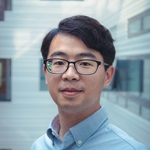
Dr. Yunzhou Deng is currently a Marie-Curie Fellow working in the Optoelectronics Group at the Cavendish Laboratory, University of Cambridge. He revoiced his Ph.D. degree in chemistry from Zhejiang University. Yunzhou’s research focuses on the fundamental processes in the electroluminescence of nanocrystals. He has explored the exciton-generation dynamics in single nanocrystal electroluminescence, efficiency-loss mechanisms in quantum-dot light-emitting diodes, and temporal behaviours of quantum-dot light-emitting diodes.
Dr. Trupti Ranjan Lenka works as Associate Professor in National Institute of Technology Silchar, Assam, India in the Department of Electronics and Communication Engineering. He has 22 years of experience in academics and electron device research. He received Ph.D. degree in Microelectronics Engineering from Sambalpur University, India in 2012, M.Tech degree in VLSI Design from Dr. A. P. J. Abdul Kalam Technical University, Lucknow, India in 2007 and B.E. degree in Electronics and Communication Engineering from Berhampur University, India in 2000. He was a Visiting Researcher to New Jersey Institute of Technology, Newark, USA in 2019 and Solar Energy Research Institute of Singapore, NUS Singapore in 2018. He visited several countries to present his research work in IEEE International Conferences. He has received the 2023 Outstanding Researcher Award, 2023 Best Researcher Award, 2021 Outstanding Volunteer Award by IEEE Kolkata Section, 2021 IEEE EDS Student Branch Chapter of the Year Award, 2021 Distinguished Researcher Award, 2019 Distinguished Faculty Award and Visvesvaraya Young Faculty Research Fellowship Award by the MeitY, Govt. of India in 2018. He is awarded as Solar Chartered Engineer by SESI, Certified Professional Engineer and Chartered Engineer by IEI. He is a Fellow of IETE and IEI. He is a Senior Member of IEEE, Member of IET, OPTICA, SPIE, IOP, SSI; and Life Member of ISTE, OBA and OPS. He is the IEEE EDS Committee Member of Compound Semiconductor Devices and Circuits Committee. His research interests include Nanoelectronics, Nanotechnology and VLSI Design. He has guided 12 Ph.D. scholars and 25 M.Tech scholars under his supervision. He (co)-authored more than 220 research articles in scientific journals, conference proceedings and book chapters. He has edited six books by Springer Nature and Bentham science and delivered more than 30 invited talks. He has been granted three international patents and implemented 12 sponsored research projects as Principal (Co) Investigator. He has been appointed as Associate Editor of four international journals.
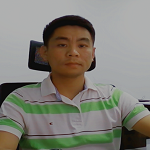
Dr. Xianshao Zou currently is an associate professor at Harbin Engineering University (Qingdao). He received his PhD degree in Chemical Physics at the Division of Chemical Physics, Lund University, Sweden. Then, He finished his postdoc studies at the Technical University of Denmark and Uppsala University. Now, he is mainly engaged in the dynamics of charge carriers in semiconductors. So far, he has published more than 40 peer-reviewed papers in ultrafast spectroscopy, carrier dynamics, photovoltaics, biosensing, etc.
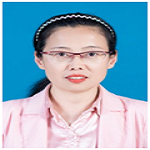
Director of Key Lab. of Carbon Materials, Chinese Academy of Sciences, P. R. China (2018.9-Present) Professor, Institute of Coal Chemistry, Chinese Academy of Sciences, P. R. China (2012- Present) Associate Professor, Institute of Coal Chemistry, Chinese Academy of Sciences, P. R. China (2005- 2012) Assistant Professor, Institute of Coal Chemistry, Chinese Academy of Sciences, P. R. China (2001- 2005) Visiting Scholar, Institute for Materials Chemistry and Engineering, Kyushu University, Japan (2002-2005) Research field: Preparation and Application of Porous Carbons, including ACF, MC, SC, etc. Preparation and Structural Control of Pitch-based Carbon Materials Preparation and Structural Control of Carbon Based Electrode Materials for New Energy Storage Devices
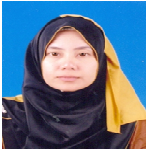
Rhonira Latif received M.Eng degree in electrical and electronic engineering from Cardiff University, Wales, UK in 2008 and Ph.D. degree in electronic engineering from the University of Edinburgh, Scotland, UK in 2012. From 2013 to 2015, she was a Senior Lecturer in Universiti Teknikal Malaysia Melaka, Malaysia. She is currently a Research Fellow in the Institute of Microengineering and Nanoelectronics, Universiti Kebangsaan Malaysia, Selangor, Malaysia. Her research interests include thin film growth using physical vapour deposition, piezoelectric crystals, polymer, metallurgy, MEMS transducers for biomedical applications, biomimetical devices, IC design, signal processing and microfabrication.
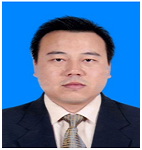
His research fields include thermodynamics and kinetics of non-equilibrium solidification, solid-state phase transformation, stability of metastable materials. He worked as a postdoc or visiting professor in University of Gottingen, Max-Planck Institute for Metals Research, University of California Davis. He is author or co-author of 3 books (book chapters) and more than 300 scientific papers in international journals, such as International Materials Reviews and Acta Materialia. He won the Distinguished Young Scientist of National Natural Science Foundation of China in 2011and the 13th China Youth Science and Technology Prize in 2013, and became the specially engaged professor of “Chang Jiang Scholars” in 2013 as well. In 2016, he was enrolled into the project “Leader of Million People Plan”. So far, Prof. Liu have obtained First-Grade-Award of Science and Technology of Shaanxi province in 2011 and First-Grade-Award of Natural Science of Chinese Ministry of Education in 2019.